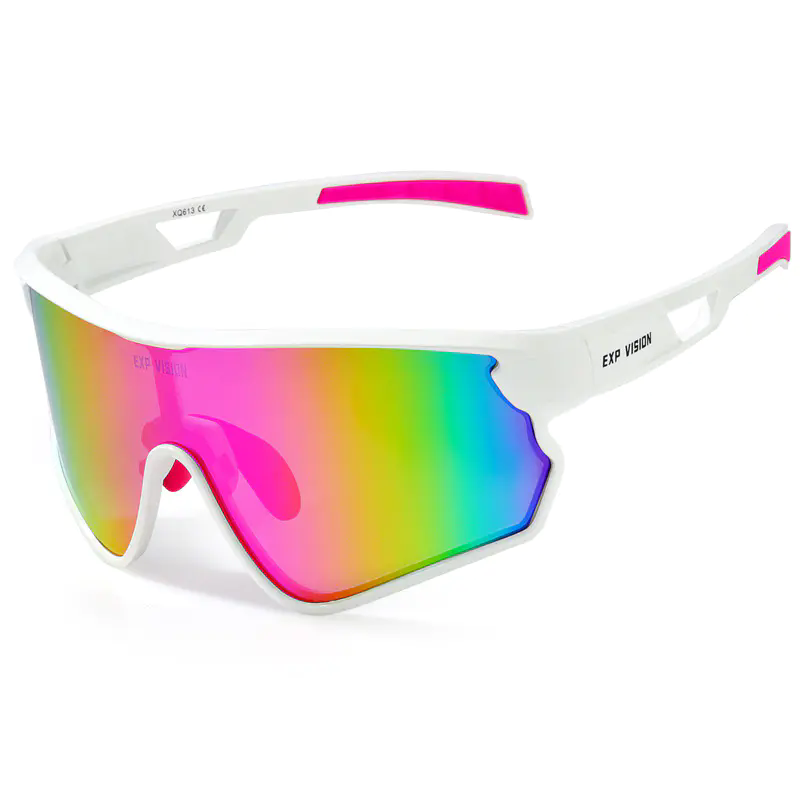Why Choose Bicycle Cycling Glasses for Every Ride?
2025-08-27
Cycling is not just a sport—it’s a lifestyle. For serious cyclists, safety, comfort, and performance are paramount. Among the essential gear, Bicycle Cycling Glasses stand out as a critical accessory. But why exactly should every rider invest in a quality pair of cycling glasses? Let’s explore the reasons in depth.
Protecting Your Eyes from External Hazards
When cycling at high speeds, your eyes face a constant barrage of potential hazards. Dust, dirt, insects, wind, and UV rays can not only be distracting but also dangerous. Traditional sunglasses often fail to offer the wrap-around protection that cycling demands.
Bicycle Cycling Glasses are specifically designed to shield your eyes without compromising vision clarity. The curved, aerodynamic lenses prevent debris from entering from the sides while maintaining a wide field of view. UV protection is another critical factor. Prolonged exposure to ultraviolet light can accelerate eye aging, damage the cornea, and increase the risk of cataracts. Top-quality cycling glasses block 99–100% of UVA and UVB rays, keeping your eyes safe during long rides.
Moreover, the glasses reduce glare from reflective surfaces such as wet roads or car windows. This feature is especially important for urban cyclists who navigate streets with unpredictable light conditions. Polarized or photochromic lenses adapt to changing light, ensuring optimal visibility at all times.
Enhancing Performance with Comfort and Stability
Performance-oriented cyclists know that even minor discomfort can reduce efficiency and focus. Standard eyewear often slides down the nose or causes pressure points after extended use. Bicycle Cycling Glasses are engineered for ergonomic fit, combining lightweight materials with adjustable nose pads and temple arms.
The frame materials, such as TR90 nylon or polycarbonate, are flexible yet durable, capable of withstanding accidental drops or collisions. Ventilation is another key performance feature. Proper airflow between the lenses and the face prevents fogging, which is particularly crucial in humid conditions or during intense exertion.
Cycling glasses also enhance visual acuity. Many models come with interchangeable lenses, allowing riders to choose clear lenses for night rides, yellow or amber lenses for low-light conditions, and dark or mirrored lenses for bright sunlight. This adaptability helps maintain consistent focus, reduce eye strain, and ultimately improve riding efficiency.
Technical Specifications and Product Features
Professional cyclists and recreational riders alike benefit from understanding the specific features that make Bicycle Cycling Glasses stand out. Below is a detailed comparison of key parameters:
| Feature | Specification | Benefit |
|---|---|---|
| Lens Material | Polycarbonate | Lightweight, impact-resistant, and shatterproof for safety |
| UV Protection | 100% UVA & UVB | Shields eyes from harmful sunlight |
| Lens Types | Photochromic, polarized, mirrored, clear | Adapts to varying light conditions, reduces glare |
| Frame Material | TR90 Nylon / Polycarbonate | Durable, flexible, and comfortable |
| Adjustable Nose Pads | Silicone, ergonomic | Prevents slippage, customizable fit |
| Temple Arms | Flexible, non-slip rubber | Secures glasses during high-speed rides |
| Ventilation | Integrated airflow design | Prevents fogging, ensures comfort |
| Weight | 25–35 grams | Lightweight for prolonged use |
| Lens Width | 140–150mm | Wide field of vision, panoramic clarity |
| Certifications | CE, ANSI Z87.1 | Compliance with safety and quality standards |
This combination of lightweight construction, adaptive lenses, and ergonomic design makes cycling glasses an indispensable part of any cyclist’s kit. Investing in these glasses ensures that both professional and recreational cyclists can ride safely and efficiently.
Bicycle Cycling Glasses Common Questions
Q1: Can I wear Bicycle Cycling Glasses if I already wear prescription glasses?
A1: Yes. Many cycling glasses are designed with prescription compatibility or offer clip-in prescription inserts. This allows riders to enjoy the benefits of protective and performance eyewear without sacrificing vision correction. Adjustable nose pads and flexible frames also ensure a secure fit over standard glasses.
Q2: How do I maintain and clean my cycling glasses?
A2: Regular maintenance is essential to maximize lens life and performance. Use a microfiber cloth to clean lenses, and avoid using abrasive materials. Mild soap and water can remove stubborn dirt, but ensure the glasses are air-dried. For photochromic or polarized lenses, avoid harsh chemicals as they may degrade lens coatings. Store glasses in a protective case when not in use to prevent scratches.
Q3: Are cycling glasses effective in rainy or low-light conditions?
A3: Absolutely. Many glasses feature anti-fog coatings and interchangeable lenses suitable for low-light or rainy conditions. Yellow or amber lenses enhance contrast, improving visibility in overcast or dusk settings, while clear lenses protect eyes from wind and rain without reducing visibility.
Q4: Do cycling glasses improve aerodynamics?
A4: Yes. Modern cycling glasses are designed with aerodynamic profiles that reduce air resistance around the face. This subtle improvement helps competitive cyclists maintain speed and reduces wind-induced eye dryness and tearing.
Investing in high-quality Bicycle Cycling Glasses is more than a fashion statement—it’s a commitment to safety, comfort, and performance. With features like impact-resistant lenses, UV protection, adaptive lens technology, and ergonomic frames, these glasses enhance every ride, whether you’re commuting, training, or racing.
TO-MAX provides a range of premium cycling glasses designed for cyclists of all levels. Each product undergoes rigorous testing to meet international safety standards while delivering lightweight comfort and superior optical clarity.
Ready to upgrade your cycling experience? Contact us to explore the full range of TO-MAX Bicycle Cycling Glasses and find the perfect pair for your next adventure.



